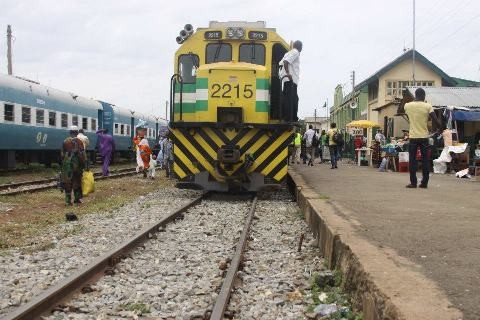The long neglect of the development of the railway transportation system by succeeding administrations in the country has robbed the country of enormous revenues. It has also reduced our capacity to create more jobs and develop new markets and cities along the rail corridors.
Apart from the major railways linking the North to the East and West built by colonial masters to ferry goods and services to the coasts, no Nigerian administration has mustered the political will to comprehensively expand the nation’s railway transportation system and link up major Nigerian cities.
In fact, what former President Muhammadu Buhari administration did in this regard was not far-reaching enough. For instance, the South-East region was cut off from Buhari’s railway infrastructure.
Like roads and bridges, the railway has become the most utilized means of transportation in modern era outside the air transportation modal.
While many Nigerians governments have emphasized road transportation system, many advanced countries have exploited fully the advantages of railway transportation. The advantages of rail transportation far outweigh those of road transportation.
The railways carry more people and goods at the same time to many destinations across the country even faster than vehicles. It is still the fastest and cheapest means of transport.
Unfortunately, the federal government has not done enough to fully develop this safe means of transportation. Similarly, the state governments have not shown enough interest in the development of the railways.
Although roads and railways bolster economic development and development of cities, the railways do more. Most advanced countries in Europe and Asia have efficient railway system.
The United States (US) and China have done much in this mode of transportation. Just as roads are arteries of economic development, the same can equally be said of the railways. Apart from Lagos State, the other states appear not to be interested in the development of the railway sector.
Just like agriculture, the states can enhance their internally generated revenue by investing in rail infrastructure.
With about 3,505 km Cape gauge national railway network and 669km of standard gauge, Nigeria’s railway infrastructure is grossly inadequate in a country of over 200million people and a land mass of 923,768 sq km. Available information shows that the Cape gauge network is in poor condition on account of poor maintenance.
Eighty per cent of the current Nigerian railways were originally built by Britain, the erstwhile colonial power. The railways were built to the 1,067mm (3ft 6in) Cape gauge. Nigeria has two major Cape gauge lines: The Western line of 1,126km, which connects Lagos to Nguru in Yobe State and the Eastern line which connects Port Harcourt to Maiduguri.
Other link lines include the 20km Ifaw-Ilaro, the 150km Minna-Baro, the 245km Zaria-Kaura Namoda, the 55km Kuru-Jos and 200km Baro-Kano Railway station. The Warri-Itakpe Railway was completed in 2020. The Cape-gauge from Kano-Maradi in Niger Republic is still under construction.
The Nigerian railway infrastructure is not yet fully developed. There is need to have the Lagos-Benin- Onitsha railway. Apart from its economic importance, it will reduce the pressure on the Lagos-Benin-Onitsha expressway.
The federal government should see the construction of railways as a social investment instead of invest that yields immediate profit. President Bola Tinubu should make bold plans to expand and modernize Nigeria’s rail infrastructure.
Nigeria is among the eight countries in Africa with the best railway system, we still have a long way to go. Others in the enviable league include Algeria, South Africa, Tunisia, Egypt, Morocco, Senegal and Kenya. Globally, United States has the largest overall rail network put at 220,044km.
It is quickly followed by China, which has the largest high-speed rail network put at 159,000km. Japan and Hong Kong have the best rail infrastructure in the world. Switzerland is adjudged to have one of the best railway networks in the world. South Africa railway system is also rated among the best in the world due to its reliability and extensive connectivity. While South Africa has 20,953km railway network, Egypt has 7,024km and Nigeria has 3,600km.
Although Nigeria requires an investment of not less than $66billion to effectively deliver efficient rail transportation, the investment in the sector so far is not adequate. That is why the federal and state governments should work together to develop the railway infrastructure. The private sector can also be allowed to participate in providing efficient railway transportation system.
- The Sun Editorial













